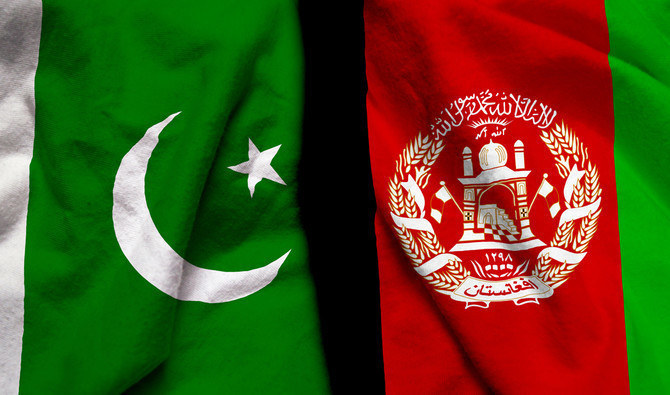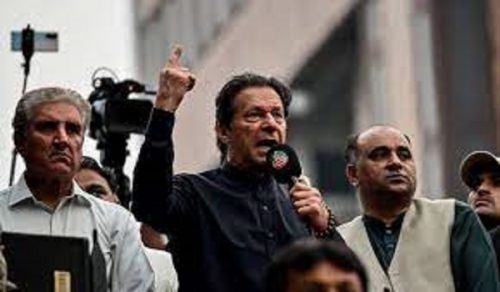Pakistan’s Agriculture and Industry Neglected

Saturday, 01st Ramadhan 1438 AH 27/05/2017 CE No:PR17040
Press Release
Pakistan’s Agriculture and Industry Neglected
Capitalist Democratic System Discourages Local Production and Manufacturing in Pakistan
Before the announcement of the Budget 2017-18, the Finance Minister of the Bajwa-Nawaz regime informed the nation of a 2% growth in the services sector, at the cost of industrial and agriculture sectors, within the Gross Domestic Product (GDP). Thus, the share of the services’ sector increased to 59.6%, against decreases to a 19.5% share for agriculture and a 20.9% share for industry. Pakistan is a country which has been blessed by Allah (swt) with vast agricultural lands, rivers, canals, mineral and human resources. The Islamic economic system and a sincere leadership could have made Pakistan a leading economy of the world, with strong agriculture and industry. However, the capitalist system and corrupt leadership has never allowed Pakistan to become a strong economy. Instead they have weakened it day and night to protect the interests of colonialist powers. It is alarming that the share of agriculture and industry is reducing, whilst the share of service sector is increasing. Consider that in 1960, the share of agriculture and industry was 43.6% and 25.2% respectively, which has now been reduced to 19.5% and 20.9% respectively. It simply means that Pakistan is becoming an economy dependent on foreign products, unable to produce locally to a level of sufficiency.
Any country whose agricultural and industrial sector is weak, will always be dependent on others, no matter how much the economy has grown in terms of GDP. The relative decline in the agriculture and industrial sector and increase in service sector reveals that business men are not investing in production and manufacturing. Pakistan’s business community is expressing its displeasure of government policies. Businessmen lament that government policies discourage local investment in the manufacturing industry. So instead of investing in industry and agriculture, which are crippled through heavy taxation and energy shortage, local investors are turning to retail and services provision. As just one example, the steel sector will be taxed on electricity consumption at Rs.10.5 per unit, instead of Rs. 9 per unit. The steel industry is the backbone of the industrial sector, yet, the government first crippled Pakistan Steel Mills and is now forcing closure of the small steel mills by raising their energy costs for production. Therefore, boasting about the GDP has no value when government policies are weakening agriculture and industrial production at the expense of the service sector.
The need of the time is the Islamic economic system as implemented by the Khilafah on the Method of Prophethood, for which the sincere leadership, Hizb ut-Tahrir, is working for throughout the Muslim World. Islam’s economic system encourages the citizens, farmers and industrialists to take full advantage of available resources. That is why in its Introduction to the Constitution, Hizb ut-Tahrir has adopted in Articles 159 and 160, “The State supervises agricultural affairs and its produce in accordance with the needs of the agricultural policy which is to achieve the potential of the land to its greatest level of production” and “The State supervises the whole affairs of industry. It directly undertakes those industries which are connected to whatever is part of the public property.”
Whether presented by civilian or military rulers, the last seventy capitalist budgets have consistently destroyed Pakistan’s economy, concentrating the wealth in the hands of the rulers, their entourage and their colonialist masters. And each new capitalist budget will continue to do so, no matter how much the GDP, per capita income and foreign exchange reserves rise. Each capitalist budget is made under the instructions of colonialist powers, whose sole purpose is to weaken the economy of Pakistan and safeguard the interests of colonialist countries so their own economies flourish. A clear example of colonialist control is the annual meeting with the colonialist institution, the IMF, weeks before the Pakistan’s budget. Moreover, the capitalist system is a kufr system, which has no link to the Quran and Sunnah and whose implementation angers Allah swt. Only the economic system of Islam will make Pakistan’s economy strong. And this economic system is implemented by Islam’s ruling system, the Khilafah. Therefore the Muslims must end all hope in Capitalist Democracy and work with Hizb ut-Tahrir for the establishment of the Khilafah on the Method of Prophethood, whose every law is derived from the Quran and Sunnah.
وَمَنْ أَعْرَضَ عَن ذِكْرِى فَإِنَّ لَهُ مَعِيشَةً ضَنكاً
“But whosoever turns away from My Reminder (i.e. Quran) verily, for him is a life of hardship” (Taha:124)
Media Office of Hizb ut-Tahrir in Wilayah Pakistan
بسم الله الرحمن الرحيم
پاکستان کی زراعت اور صنعت کو نظر انداز کیا جارہا ہے
سرمایہ دارانہ جمہوری نظام پاکستان میں مقامی پیداوار کی حوصلہ شکنی کرتا ہے
باجوہ-نواز حکومت کے وزیر خزانہ نے بجٹ تقریر سے قبل یہ انکشاف کیا کہ اس سال کی اہم ترین بات یہ ہے کہ صنعت و زراعت کے شعبے کی قیمت پرخدمات کے شعبے ( سروسز سیکٹر) میں کُل ملکی پیداوار کے 2 فیصد کے برابر اضافہ ہوا ہے۔ ملکی پیداوار میں سروسز کے شعبے کا حصہ بڑھ کر 59.6فیصد ہوگیا ہے جبکہ زراعت کا حصہ19.5 فیصد اور صنعت کا حصہ 20.9فیصد ہے۔پاکستان وہ ملک ہے جسے اللہ سبحانہ و تعالیٰ نے وسیع وعریض زرعی زمینوں، دریاوں، نہروں، معدنی و انسانی وسائل سے بے انتہا نوازا ہے ۔ اس صورتحال میں اسلام کا معاشی نظام اور مخلص قیادت پاکستان کو دنیا کی صف اول کی صنعتی و زراعتی معیشت بنا سکتی تھی۔ لیکن سرمایہ دارانہ نظام اور کرپٹ قیادت نے استعماری قوتوں کے مفادات کے تحفظ کے لیے پاکستان کو اس کی صلاحیت کے مطابق طاقتور معیشت بننے ہی نہیں دیا بلکہ اس کو دن بدن کمزور کرتے جا رہے ہیں۔ یہ بات انتہائی تشویش ناک اور خطرناک ہے کہ پاکستان کی معیشت میں زراعت اور صنعت کا حصہ کم اور خدمات (سروسز) کا حصہ بڑھتا جارہا ہے۔ 1960 میں پاکستان کی کُل معیشت میں زراعت کا حصہ 43.6 فیصد جبکہ صنعت کا 25.2 فیصد تھا جو اب گھٹ کر بلترتیب 19.5 اور 20.9 فیصد رہ گیا ہے۔ اس کا سیدھا سا مطلب یہ ہے کہ ہم ایک کنزیومر سوسائٹی بنتے جا رہے ہیں جو اپنی ضروریات کے استعمال کے اشیاء خود نہیں بناسکتی بلکہ دوسروں سے خریدتی اور انہیں استعمال کرتی ہے۔
کوئی بھی ایسا ملک جس کی صنعت اور زراعت کا شعبہ کمزور ہو وہ ہمیشہ دوسروں پر انحصار ہی کرتا رہے گا چاہے اس کی کُل ملکی پیداوار(جی ڈی پی) میں کتنا ہی اضافہ کیوں نہ ہوجائے۔ زراعت اور صنعت کے شعبے میں کمی اور سروسز کے شعبے میں اضافہ اس بات کی بھی نشان دہی کرتا ہے کہ کاروباری حضرات پیداواری شعبے میں سرمایہ کاری کرنے کے بجائے غیر پیداواری شعبے میں سرمایہ کاری کررہے ہیں۔ ملک کا کاروباری طبقہ بھی حکومت کے اس پالیسی پر اپنی برہمی کا اظہار کررہا ہے۔ ان کا یہ کہنا ہے کہ حکومت کی پالیسیاں اور اس کا رویہ پیداواری شعبے میں سرمایہ کاری کرنے کی حوصلہ شکنی کا باعث ہے۔لہٰذا ایسی صورتحال میں صنعت اور زراعت کے شعبے میں سرمایہ کاری کی جگہ، جو بھاری ٹیکسوں اور توانائی کے بحران سے مفلوج ہوگئے ہیں، مقامی سرمایہ کار پراپرٹی اور پرچون کے کاروبار میں سرمایہ لگا رہے ہیں ۔ ملک میں صنعتی پیداوار کو نقصان پہنچانے کی پالیسی کا اس سے بڑا ثبوت اور کیا ہوسکتا ہے کہ حکومت نے اس بجٹ میں اسٹیل کے شعبے کے لیے بجلی کی قیمت 9 روپے فی یونٹ سے بڑھا کر 10.5روپے فی یونٹ کرنے کی تجویز دی ہے۔ اسٹیل صنعتی شعبے میں ریڑھ کی ہڈی کی حیثیت رکھتا ہے ۔ اس حکومت نے پہلے پاکستان اسٹیل کو دوبارہ کھڑا کرنے سے مکمل اجتناب کیا اور اب جو چھوٹی چھوٹی اسٹیل ملیں ملک میں ہیں یہ انہیں بھی ان کی پیداواری لاگت بڑھا کر ختم کرنے کے درپے ہے۔ لہٰذا کُل ملکی پیداوار(جی ڈی پی) کی کوئی وقعت نہیں جب سروسز سیکٹر کی قیمت پر زراعت اور صنعت کا شعبہ کمزور ہورہا ہو۔
وقت کی ضرورت ہےکہ اسلام کا معاشی نظام نبوت کے طریقے پر خلافت کے قیام کی ذریعے نافذ کیا جائے، اور اسی مقصد کے حصول کے لیے مخلص قیادت، حزب التحریر، پوری مسلم دنیا میں جدوجہد کررہی ہے۔ اسلام کا معاشی نظام ریاست کے شہریوں ، کسانوں اور صنعت کاروں کو ریاست کے وسائل سے بھر پور فائدہ اٹھانے کے مواقع فراہم کرتا ہے۔ اسی لیے حزب التحریر نے اپنے مقدمہ دستور کی دفعہ نمبر 159 اور 160 میں لکھا ہے کہ،”ریاست زرعی معاملات اور زرعی پیداوار کی نگرانی اُس زرعی پالیسی کے مطابق کرے گی جس کی رُو سے زمین سے زیادہ سے زیادہ فائدہ اٹھایا جائے جو کہ اعلیٰ درجہ کی پیداوار کی صورت میں حاصل ہو” اور”ریاست صنعت کے شعبے کے تمام معاملات کی نگرانی کرے گی اور عوامی ملکیت سے تعلق رکھنے والی صنعتوں کی براہ راست نگرانی اور دیکھ بھال کرے گی”۔
پچھلے 70 سرمایہ دارانہ بجٹس نے، چاہے وہ جمہوری دور میں پیش کیے گئے یا فوجی آمریت کے دور میں، پاکستان کی معیشت کو مسلسل تباہ کیا ، دولت کو حکمرانوں، ان کے ساتھیوں اور ان کے استعماری آقاوں کے ہاتھوں میں مرتکز کیا۔ اور ہر آنے والا سرمایہ داریت پر مبنی بجٹ یہی کرتا رہے گا چاہے ملکی پیداوار، اوسط آمدنی، زرمبادلہ کے ذخائر وغیرہ کتنے ہی کیوں نہ بڑھ جائیں۔ ہر سرمایہ دارانہ بجٹ استعماری طاقتوں کی ہدایات کے مطابق بنایا جاتا ہے جس کا مقصد پاکستان کی معیشت کو کمزور کرنا اور استعماری ممالک کی مفادات کا تحفظ کر کے ان کی معیشتوں کو مضبوط کرنا ہوتا ہے۔ بجٹ پر استعماری طاقتوں کے کنٹرول کی واضح مثال پاکستان کے بجٹ کے اعلان سے چند ہفتوں قبل حکومتی عہدیداروں کی استعماری ادارے، آئی ایم ایف کے ساتھ سالانہ اجلاس ہے۔ اس کے علاوہ سرمایہ دارانہ نظام کفر کا نظام ہے جس کا قرآن و سنت سے کوئی تعلق نہیں ہے، اور اس کا نفاذ اللہ سبحانہ و تعالیٰ کی ناراضگی کا باعث بنتا ہے ۔ صرف اور صرف اسلام کا معاشی نظام ہی پاکستان کی معیشت کو مضبوط و توانا کرے گا، اور اسلام کا معاشی نظام اسلام کے نظام حکمرانی، خلافت، کے تحت ہی نافذ ہوتا ہے۔ لہٰذا مسلمانوں کو جمہوری سرمایہ دارانہ نظام سے کوئی امید نہیں رکھنی چاہیے اور نبوت کے طریقے پر خلافت کے قیام کے لیے حزب التحریر کی جدوجہد کا حصہ بن جانا چاہیے جو صرف اور صرف قرآن و سنت سے اخذ کردہ قوانین کو نافذ کرتی ہے۔
وَمَنْ أَعْرَضَ عَن ذِكْرِى فَإِنَّ لَهُ مَعِيشَةً ضَنكاً
“”جو میرے ذکر(قرآن) سے منہ موڑے کا تو اس کی زندگی تنگ ہو جائے گی”(طہ:124)





